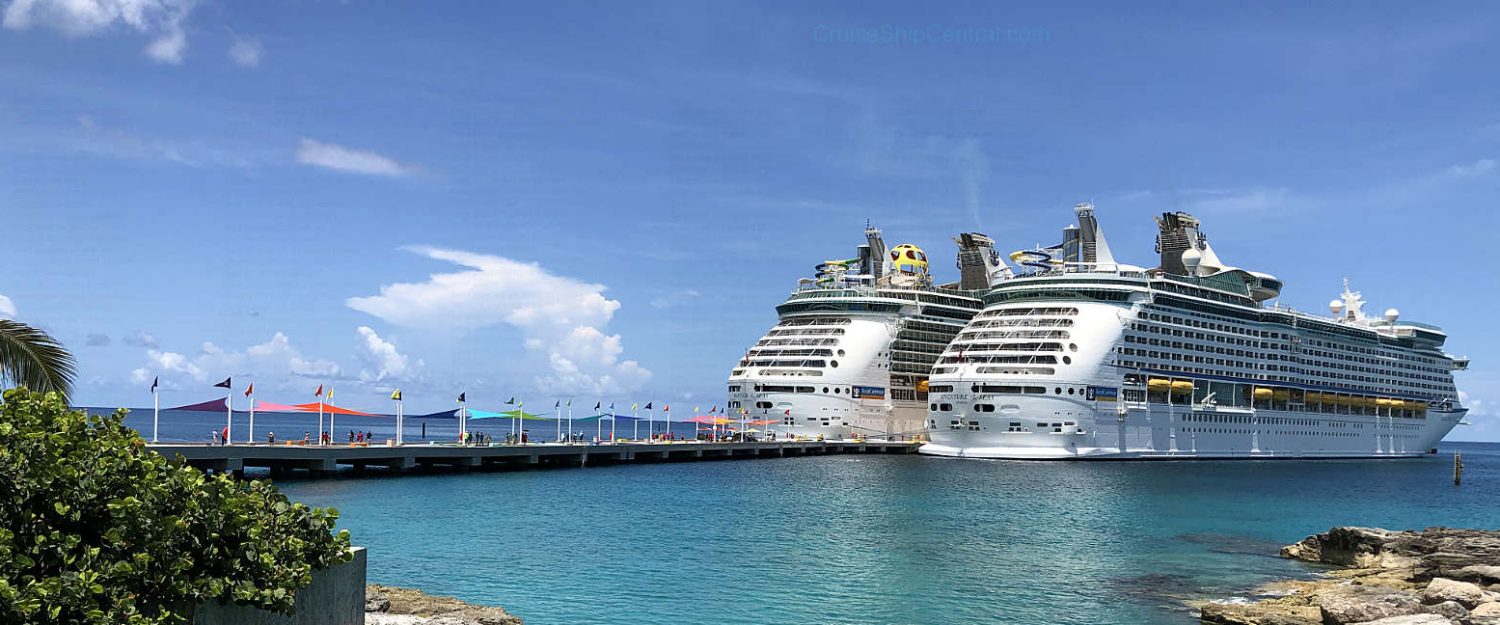Ahoy there! Ever wondered if you can step foot off a cruise ship without a trusty passport? Well, wonder no more, because today we’re uncovering the truth to satisfy your curious mind. Many globetrotters have pondered this very question – can I disembark from a luxurious cruise getaway without the official paper that holds all my personal information? Stick around as I spill the beans on this intriguing travel topic!

Overview
Can you get off a cruise ship if you do not have a passport?
As a frequent cruiser, I often get asked about the passport requirements for disembarking from a cruise ship. Many people wonder if it is possible to get off a cruise ship without a passport. In this comprehensive article, I will guide you through the cruise line policies, destination requirements, emergency situations, traveling within the same country, the concept of a “Cruise to Nowhere,” possible exceptions, special circumstances, additional considerations, and finally, I will conclude with some valuable insights. So, let’s get started and explore the fascinating world of cruise ship travel!
Cruise Line Policies
Cruise Line Policies on Passport Requirements
While having a passport is generally recommended for cruise ship travel, it is not always mandatory. Each cruise line has its own policy regarding passport requirements. Some cruise lines strictly enforce the rule of having a valid passport for all passengers, regardless of the destinations visited. However, many cruise lines accept alternative documents that can be used in place of a passport.
Acceptable Alternative Documents
If you don’t have a passport, don’t worry! There are alternative documents that most cruise lines accept. These may include government-issued identification cards, such as a driver’s license or a birth certificate, accompanied by a valid photo ID. It is important to check with your specific cruise line to ensure you have the correct documents for your specific itinerary.

Destination Requirements
Countries Requiring Passports
When it comes to cruise ship travel, the port destinations play a crucial role in determining the passport requirements. Some countries strictly require a valid passport for all visitors, regardless of whether they arrive by air, land, or sea. These countries often enforce this rule as a means of maintaining security and ensuring proper identification of travelers.
Countries Allowing Alternative Documents
On the other hand, some countries are more lenient and allow alternative documents for cruise ship passengers. This means that even if you don’t have a passport, you may still be able to disembark and explore these destinations. However, it is important to note that the specific alternative documents accepted may vary from country to country, so it is always wise to check with your cruise line and the respective country’s embassy or consulate ahead of time.
Entry and Exit Documents
Regardless of whether you have a passport or are using alternative documents, it is important to have the necessary entry and exit documents for each country you plan to visit on your cruise. This may include visas, tourist cards, or any additional documentation required by the specific destination. Again, it is advisable to consult with your cruise line and the appropriate authorities to ensure you have the correct documentation for each port of call.
Emergency Situations
Emergency Disembarkation Without a Passport
In emergency situations, such as illness or injury, you may need to disembark from the cruise ship without a passport. Cruise lines understand these unforeseen circumstances and have protocols in place to assist passengers in such situations. In emergencies, the cruise line will work closely with local authorities to ensure the necessary arrangements are made for your safe departure and repatriation, if required.
Cruise Line Assistance in Emergency Situations
Cruise lines prioritize passenger safety and well-being, and they have dedicated staff members who are trained to handle emergency situations. In the event that you need to disembark without a passport due to an emergency, the cruise line will provide the necessary assistance and guidance to ensure a smooth process. It is important to notify the ship’s crew as soon as possible so that they can initiate the appropriate protocols.

Traveling within the Same Country
Domestic Cruises
If you are embarking on a cruise within your own country, the passport requirements may differ. Domestic cruises often do not require a passport, as they operate within the national borders. However, it is still advisable to carry a valid form of identification with you, such as a driver’s license, as it may be required for security purposes when boarding and disembarking the ship.
Coastal Voyages
Coastal voyages are another type of cruise where passport requirements may not be as stringent. These voyages typically stay within the coastal waters and visit ports within the same country. While a passport may not be necessary, having a valid form of identification is still recommended to comply with the ship’s policies and any local requirements at the ports of call.
Cruise to Nowhere
What is a Cruise to Nowhere?
A “Cruise to Nowhere” is an intriguing concept that has gained popularity in recent years. It involves embarking on a cruise without any specific port destinations. Instead of visiting different countries or islands, the ship simply sails out to sea, providing a relaxing and leisurely experience onboard. These cruises are sometimes offered as short getaways or theme-based cruises.
Passport Requirements for a Cruise to Nowhere
One of the advantages of a Cruise to Nowhere is the flexibility it offers in terms of passport requirements. Since there are no specific port destinations involved, the need for a passport is often waived. However, it is important to note that some cruise lines may still require a valid form of identification, such as a driver’s license, to comply with their onboard policies and security measures.

Possible Exceptions
Closed-Loop Cruises
Closed-loop cruises are another exceptional case where passport requirements may be different. A closed-loop cruise is a round-trip voyage that begins and ends at the same port in the same country. These cruises often do not require a passport, especially if they remain within the domestic borders. However, it is always wise to carry a valid form of identification, as it may be required by the cruise line or local authorities at the ports of call.
Traveling to US Territories
Traveling to US territories is yet another exception to the standard passport requirements. US citizens do not need a passport to travel to US territories, such as Puerto Rico or the US Virgin Islands. A government-issued photo ID, such as a driver’s license, is generally sufficient for entry. However, it is recommended to check the specific requirements for each territory before embarking on your cruise.
Special Circumstances
Medical Emergencies
In case of a medical emergency onboard a cruise ship, the well-being of the passenger is of utmost importance. If a passenger requires immediate medical attention and needs to be disembarked, the cruise line will work closely with local authorities and medical professionals to arrange for the necessary procedures. In such cases, passport requirements may be waived to expedite the medical assistance.
Death or Illness of a Family Member
The unforeseen circumstances of a death or serious illness of a family member while onboard a cruise can be emotionally challenging. Cruise lines understand the sensitivity of these situations and will provide necessary assistance and support. In such cases, the cruise line may work with local authorities and embassies to facilitate the passenger’s return home, even if they do not have a passport or proper identification.
Other Unforeseen Circumstances
Life is unpredictable, and there may be other unforeseen circumstances that require a passenger to disembark from a cruise ship without a passport. These could include natural disasters, political unrest, or other emergency situations. When faced with such circumstances, the cruise line will prioritize passenger safety and well-being, working diligently to make the necessary arrangements for a safe and secure exit.
Additional Considerations
Transfer to Another Ship
In some cases, passengers may need to transfer to another ship during their cruise due to operational reasons or itinerary changes. When transferring to another ship within the same cruise line, passport requirements are often not applicable. However, if the transfer involves changing cruise lines, it is advisable to carry a passport or valid identification to comply with the new cruise line’s policies and any port requirements.
Enforcing Onboard Policies
While the passport requirements for disembarking are essential to ensure compliance with immigration laws and safety measures, cruise lines also have onboard policies that passengers must adhere to. These policies may include carrying proper identification, even if a passport is not required. It is important for passengers to respect and follow these policies to ensure a smooth and enjoyable cruise experience.
Travel Insurance
Regardless of whether a passport is required for disembarking, having travel insurance is always a wise decision. Travel insurance provides coverage for a wide range of unforeseen events, including trip cancellations, medical emergencies, and delayed or lost baggage. It is highly recommended to purchase travel insurance before embarking on a cruise, as it offers peace of mind and financial protection in case of any unexpected situations.
Conclusion
In conclusion, while having a passport is generally recommended for cruise ship travel, it is possible to disembark from a cruise ship without a passport under certain circumstances. Cruise lines have specific policies regarding passport requirements, and alternative documents can often be used instead. The destination requirements and emergencies also play a role in determining if a passport is necessary. Whether you are traveling within the same country, embarking on a Cruise to Nowhere, or facing special circumstances, such as medical emergencies or sudden illness of a family member, the cruise lines are equipped to handle these situations with proper protocols and assistance. Always ensure to check with your specific cruise line and the authorities of the destinations you plan to visit to ensure you have the correct documentation. Remember, travel insurance is essential to protect yourself and your loved ones from any unexpected events that may arise during your cruise vacation. So go ahead, embark on your next cruise adventure with confidence, knowing that you are well-informed about the passport requirements and prepared for any situation that may arise. Bon voyage!

